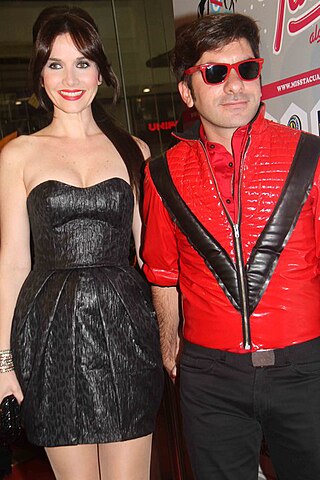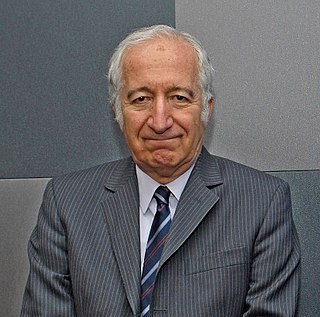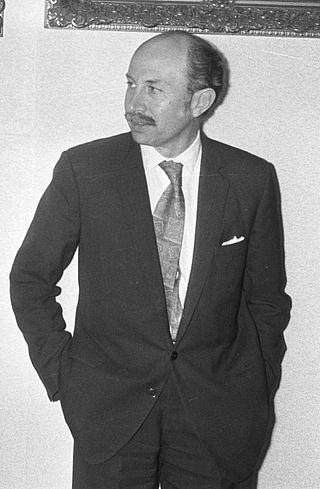Related Research Articles

Candler School of Theology is one of seven graduate schools at Emory University, located in metropolitan Atlanta, Georgia. A university-based school of theology, Candler educates ministers, scholars of religion and other leaders. It is also one of 13 seminaries affiliated with the United Methodist Church.
Woodie Walter White is an American bishop of the United Methodist Church, elected in 1984.
Kenneth Lee Carder is a retired American bishop of the United Methodist Church, elected in 1992. Carder distinguished himself as a pastor, a member of Annual Conference and General U.M. agencies, a bishop, seminary professor, and an author.
William Ragsdale Cannon was the dean of Candler School of Theology (1953-1968) and an American bishop of the United Methodist Church, elected in 1968.
Federico José Pagura was an Argentine religious leader and champion of human rights. He was born on February 9, 1923, in Arroyo Seco, Santa Fe, Argentina. Converted to Methodism in his adolescence, became a normal school teacher and graduated from the Facultad Evangélica de Teología in Buenos Aires. He did post-graduate studies in the United States and was ordained a Methodist pastor in 1950.

Martín Sastre is a Uruguayan film director and contemporary media artist working with film, video, sculpture, photography and drawing.
Roy Hunter Short was an American bishop of The Methodist Church and the United Methodist Church, elected in 1948.
Bowman Foster Stockwell was an American Methodist missionary, teacher, scholar and theologian. In 1960, he was elected to Bishop of The United Methodist Church (UMC), which is a mainline Protestant denomination and a major part of Methodism in the United States.
Alfred Lloyd Norris is a retired American Bishop of the United Methodist Church, elected in 1992. He also distinguished himself as a Methodist/United Methodist Pastor, as a District Superintendent, as the President of a U.M. Seminary, and as a Mason.
The Second Stage of the 2007 Copa Libertadores was a group stage.

Alfredo Vicente Scherer was a Brazilian cardinal of the Roman Catholic Church. He served as Archbishop of Porto Alegre, Brazil from 1947 to 1981, and was elevated to the rank of cardinal in 1969.

Bernardo Kliksberg is an Argentine Doctor of Economics, recognized around the world as the founder of a new discipline, social management, and a pioneer of development ethics, social capital and corporate social responsibility. His books, papers, advisory work, and research, applies an interdisciplinary approach integrating contributions of different social sciences.
B. Michael Watson is a bishop of The United Methodist Church, elected in 2000. He served as resident bishop of the North Georgia Annual Conference, which comprises 1,000 churches, more than 1,500 clergy members, and more than 320,000 lay members. He retired in 2016 and currently serves as ecumenical officer of the Council of Bishops.
Facultades de Filosofía y Teología de San Miguel is a Jesuit university and seminary in San Miguel, Buenos Aires Province, Argentina.
José Luis Mollaghan is an Argentinian prelate of the Roman Catholic Church. Since 2014 he has been an official of the Congregation for the Doctrine of the Faith. He previously held positions in Argentina, including Auxiliary Bishop of Buenos Aires and Archbishop of Rosario.

José Míguez Bonino was an Argentine Methodist theologian.
The Evangelical Lutheran Church of Argentina is a conservative, confessional Lutheran synod that holds to the Book of Concord. It has about 27.890 members. The IELA is a member of the International Lutheran Council.

Mercosur Cities Network, or simply Mercocities, is a network that unites a group of municipalities of the countries that participate in the Common Market of the South (Mercosur), whether they are members or associates. This organization of cities aims to promote their integration on a regional scale and stimulate development and cooperation between them.
Emilio Castro was a Methodist minister from Uruguay. He served as general secretary of the World Council of Churches from 1985 to 1992.
Beatriz Melano was a Uruguayan, Protestant theologian from Buenos Aires, Argentina. Melano is the first known, Protestant woman in Latin America to earn a doctorate in theology. Her participation in international theological conferences established a foundation for future women and Latin American theologians. Melano's books, articles, and presentations on a wide range of theological topics contributed to Latin American feminist and liberation theology. Her influence as a theologian extended beyond Latin America to the United States and Europe. In 1994, a meeting of "Women Professors of Theology" honored Melano as the first woman to be a professor of theology in Latin America.